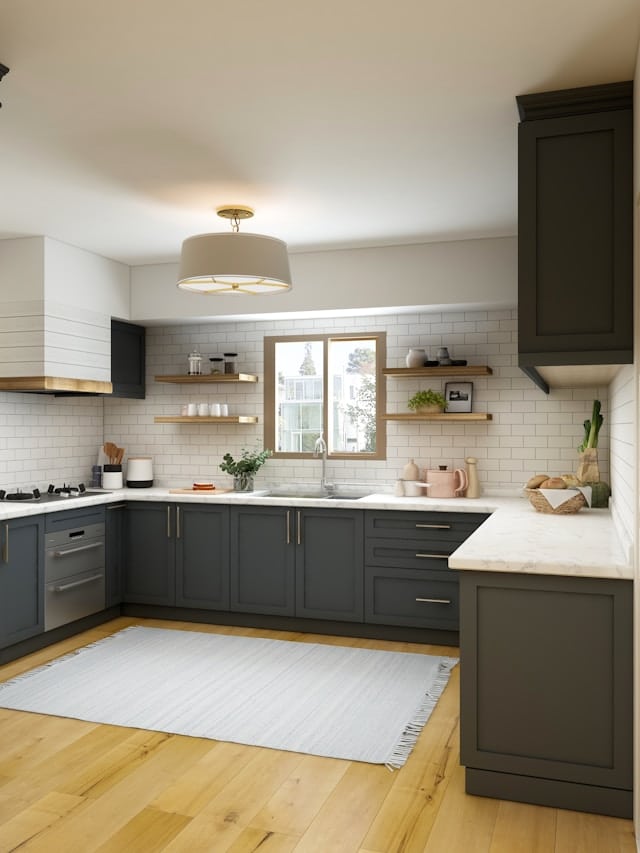The concept of communal living is not new. It dates back to the early human civilizations when people used to live, work, and eat together as a community. Today, as we face the challenges of urbanization and limited living spaces, the idea of communal living, particularly communal kitchens, is making a comeback in apartment complexes across the world. In this article, we’ll explore the many advantages of incorporating communal kitchens in urban apartment complexes.
Promoting a Sense of Community
The first and most obvious advantage of communal kitchens is the way they encourage community spirit. When you cook in the same space as your neighbors, it becomes much easier to get to know them and build relationships.
Sujet a lire : How to navigate VAT considerations for UK real estate development projects?
Communal kitchens serve as a social hub where residents can interact, share meals, and form a sense of community. This is especially beneficial in urban areas where people often live in isolation due to fast-paced lifestyles and lack of social interaction.
In a communal kitchen, every meal becomes an opportunity to connect with others. Whether it’s sharing recipes, cooking together, or simply chatting over a cup of coffee, these interactions foster a sense of belonging and cultivate strong community bonds.
Cela peut vous intéresser : How to utilize rooftop rainwater harvesting systems in urban residential projects?
Economical and Sustainable Living
From an economical perspective, communal kitchens can help residents save money. Most communal kitchens are equipped with high-quality appliances and cooking utensils, eliminating the need for residents to purchase their own. This shared usage of resources not only reduces individual costs but also promotes a more sustainable way of living.
Moreover, communal kitchens can help reduce food waste, another significant step towards sustainability. Residents can share leftover ingredients or meals, reducing the amount of food that goes to waste.
Promoting Healthy Eating Habits
Having a communal kitchen in an apartment complex can also have a positive impact on residents’ eating habits. Cooking at home is often healthier and cheaper than eating out or ordering takeaways. However, many urban dwellers lack the time, space, or equipment to prepare meals at home.
A well-equipped communal kitchen provides residents with the opportunity to prepare their own meals. This encourages healthier eating habits, as home cooking allows residents to control the ingredients and portion sizes.
Enhancing Skills and Cultural Exchange
Humans have been sharing cooking techniques and recipes since the dawn of time. A communal kitchen can become a platform for residents to exchange cooking skills and culinary traditions.
Cooking in a communal kitchen allows residents to learn from each other, acquire new skills, and appreciate diverse cultures through food. This enriches the lives of community members, broadening their horizons and fostering mutual respect and understanding.
Fostering Emotional Well-being
The emotional well-being benefits of communal kitchens should not be underestimated. Cooking and sharing meals with others can be therapeutic and rewarding. It can help combat loneliness, which is common among urban dwellers, and promote mental well-being.
Communal kitchens provide a safe and welcoming environment where residents can unwind, express their creativity through cooking, and find emotional support within their community. In this sense, communal kitchens can contribute significantly to enhancing the overall quality of life for residents of urban apartment complexes.
In Summary
Communal kitchens in apartment complexes offer numerous advantages, from fostering a sense of community to promoting healthy eating habits, reducing costs, and enhancing emotional well-being. They represent an innovative solution to many of the social, economic, and environmental challenges faced by urban dwellers today.
The Potential of Communal Kitchens in Urban Development
The advantages of incorporating communal kitchens into urban apartment complexes are not only confined to the residents but also extend to urban planners and developers. Recognizing this potential could drastically change the approach towards urban development, especially in high-density areas.
As cities become more congested and space becomes more precious, communal kitchens provide a viable solution to make the most out of limited living spaces. By having a shared kitchen, apartment complexes can dedicate more space to individual living quarters without compromising the residents’ ability to prepare their meals.
In addition, communal kitchens can be a valuable asset for apartment complexes aiming to attract a certain demographic. For example, they can appeal to millennials and Gen Z, who value community and shared experiences, or to the elderly, who might appreciate the opportunity of social interaction.
Moreover, communal kitchens can potentially increase the value of an apartment complex. They can serve as an additional amenity that sets the complex apart from competitors, attracting more potential tenants and possibly justifying higher rental fees.
From an urban development perspective, communal kitchens represent a forward-thinking approach to city planning. They encourage sustainable living by reducing individual consumption of resources and waste production. They also promote community integration and cultural exchange, contributing to the social harmony of urban dwellers.
Conclusion
The resurgence of communal kitchens in urban apartment complexes is not just a nostalgic nod to our past as communal creatures, but rather a forward-thinking solution to the challenges of modern urban living. The benefits it provides—from fostering community spirit to promoting an economical, sustainable, and healthy lifestyle—clearly demonstrates why it is an essential feature in urban apartment complexes.
In addition, the potential of communal kitchens in urban development signifies a shift in the way we view living spaces. They represent a move towards more integrated, community-oriented urban environments that not only cater to our physical needs but also address our social and emotional well-being.
Ultimately, communal kitchens embody the spirit of cooperation and community. They remind us that amidst the hustle and bustle of city life, we can still find spaces to connect with each other, learn from our differences, and build a sense of togetherness—one meal at a time. The future of urban living, therefore, might just lie in revisiting and reimagining these communal spaces.






